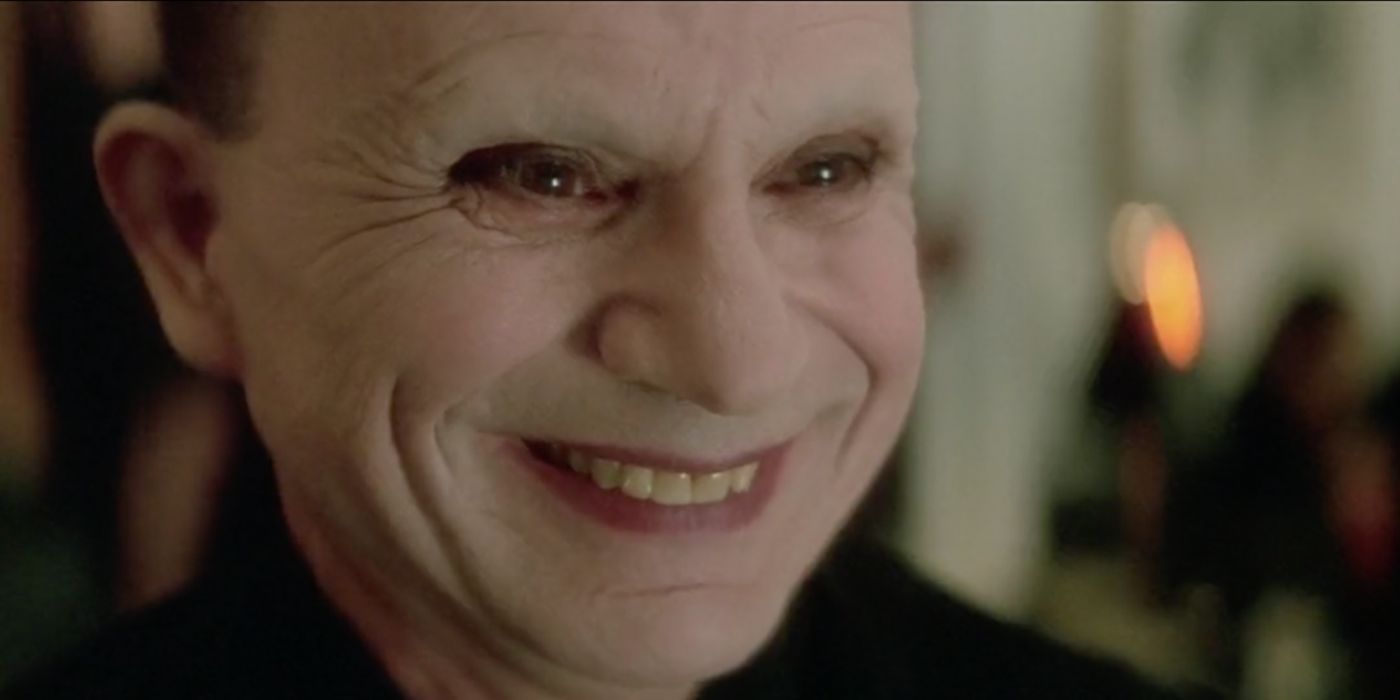The best way to define existential horror is to mention how it’s all about just being, and the way that living life — and lacking a purpose — can be terrifying. Lots of more upbeat movies deal with characters trying to find meaning in their lives and succeeding, while darker dramas might make people sit with not knowing for a great deal of time. Then there are existential horror movies, which are similarly unlikely to offer much by way of relief.
There are traces of existential horror found in a good many movies, but if something foregrounds this specific type of terror (and is quite good overall), then it stands a chance at being highlighted below. Going through such films is also a good way to define and better understand existential horror, and its unique qualities, with a bit more clarity… the kind of clarity that might not be in step with the uncertainty surrounding horror of the existential kind itself.
10
‘Annihilation’ (2018)
Alex Garland is good at writing (and sometimes directing) unsettling movies, with Annihilation being one of his best efforts to date, and potentially his creepiest, too. It functions as a sci-fi movie that begins in a way that feels a little comparable to Stalker, but there’s eventually more horror to be found when it comes to exploring a mysterious area, as was found in that Andrei Tarkovsky film.
Without giving away too much, many things seem to function differently inside the zone that the main characters explore, and this calls into question some previously concrete truths about reality and life itself. Annihilation is a slow-burn, and the horror here is of a quieter kind than you might expect in most horror movies. However, that’s something that really works when existential horror is the kind specifically being tapped into.
9
‘Skinamarink’ (2022)
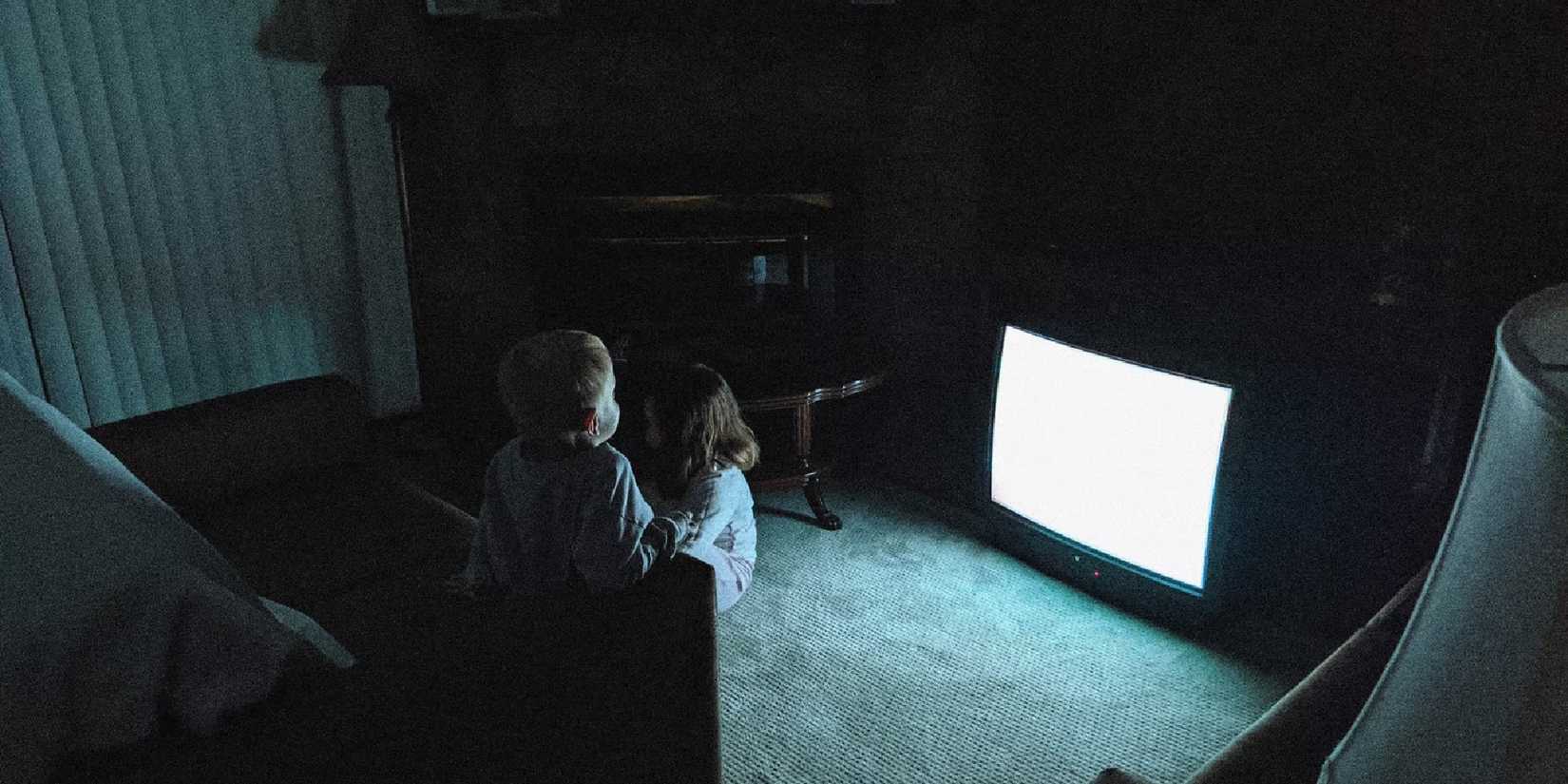
A child sitting in front of a staticky television in a dark room in Skinamarink
Image via Shudder
There’s so much that’s unknown in Skinamarink, which is remarkably abstract, to the point where it has alienated some people who find it more boring than scary. It’s so stripped back, after all, and most concerned with atmosphere and unease at the expense of plot and character development. That’s okay, though, if you find the unsettling stuff unsettling enough, and if you’re patient, there’s a lot to be rattled by here.
Skinamarink takes place inside a very strange house, and sort of follows two children who can’t find their father and start to realize they might be trapped inside said strange house. There’s very little dialogue, most shots are very static, and while a few moments are traditionally scary, it’s mostly the dread that comes with waiting around that makes Skinamarink scary. For being so vague and yet so undeniably creepy, it’s worth mentioning here.
8
‘The Ninth Configuration’ (1980)
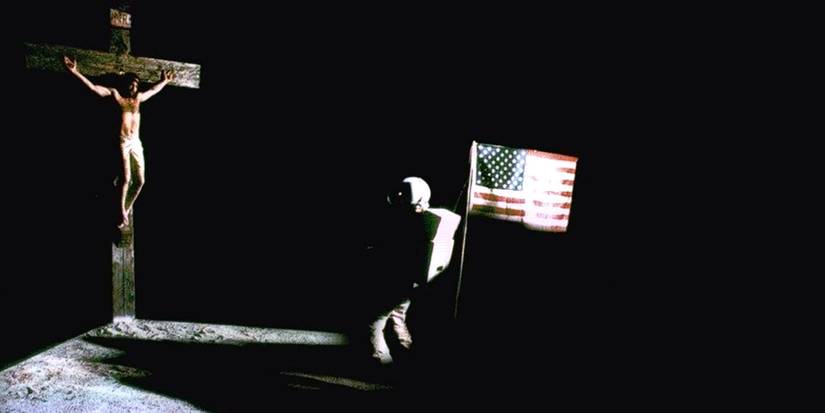
The Ninth Configuration
Image via the Warner Bros.
Though there’s a little more in The Ninth Configuration that could be called a narrative as there was in Skinamarink, it’s still an absolute mind-bender of a movie, and borderline nonsensical at times. It takes place inside a military asylum with a bunch of patients who all have some very unusual beliefs and stances on life itself, with a psychiatrist continually fascinated by some of their more outlandish ideas.
The Ninth Configuration is occasionally scary, always baffling, a little funny at times, and also packed with memorable imagery.
It’s not so much a question of whether he’ll also go mad, but how mad he’ll be driven as a result of the company he keeps, and the way he lets them continue believing what they do. Along the way, The Ninth Configuration is occasionally scary, always baffling, a little funny at times, and also packed with memorable imagery. It’s not a smooth ride by any means, but it’s so packed with ideas and visuals that it’s nonetheless a ride worth taking.
7
‘We’re All Going to the World’s Fair’ (2021)
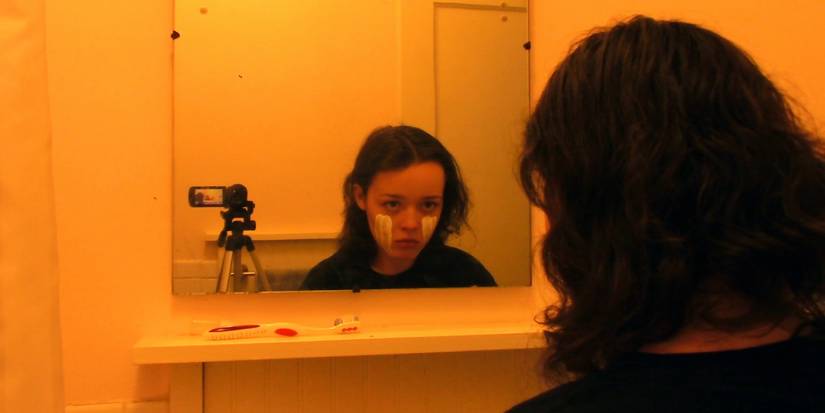
A young woman staring at her reflection in a mirror with a video camera beside her in We’re All Going to the World’s Fair (2021)
Image via Utopia
Jane Schoenbrun directed I Saw the TV Glow a few years after We’re All Going to the World’s Fair, and it was a stronger movie overall; less clearly a horror film, but more powerful on account of the way it explored identity. There’s a bit of that in We’re All Going to the World’s Fair, but it’s also possible to say it’s more about existence and the uncertainty of it all, and it finds more opportunities for horror while exploring such things.
Much of it is about reality collapsing for an isolated young woman who becomes dangerously obsessed with a strange sort of role-playing game online. It taps into existential horror while also being an example of digital horror, finding a unique sort of eeriness with the way so much of it involves the unease of being/living online, and because of how it works as a psychological horror/drama film.
6
‘eXistenZ’ (1999)
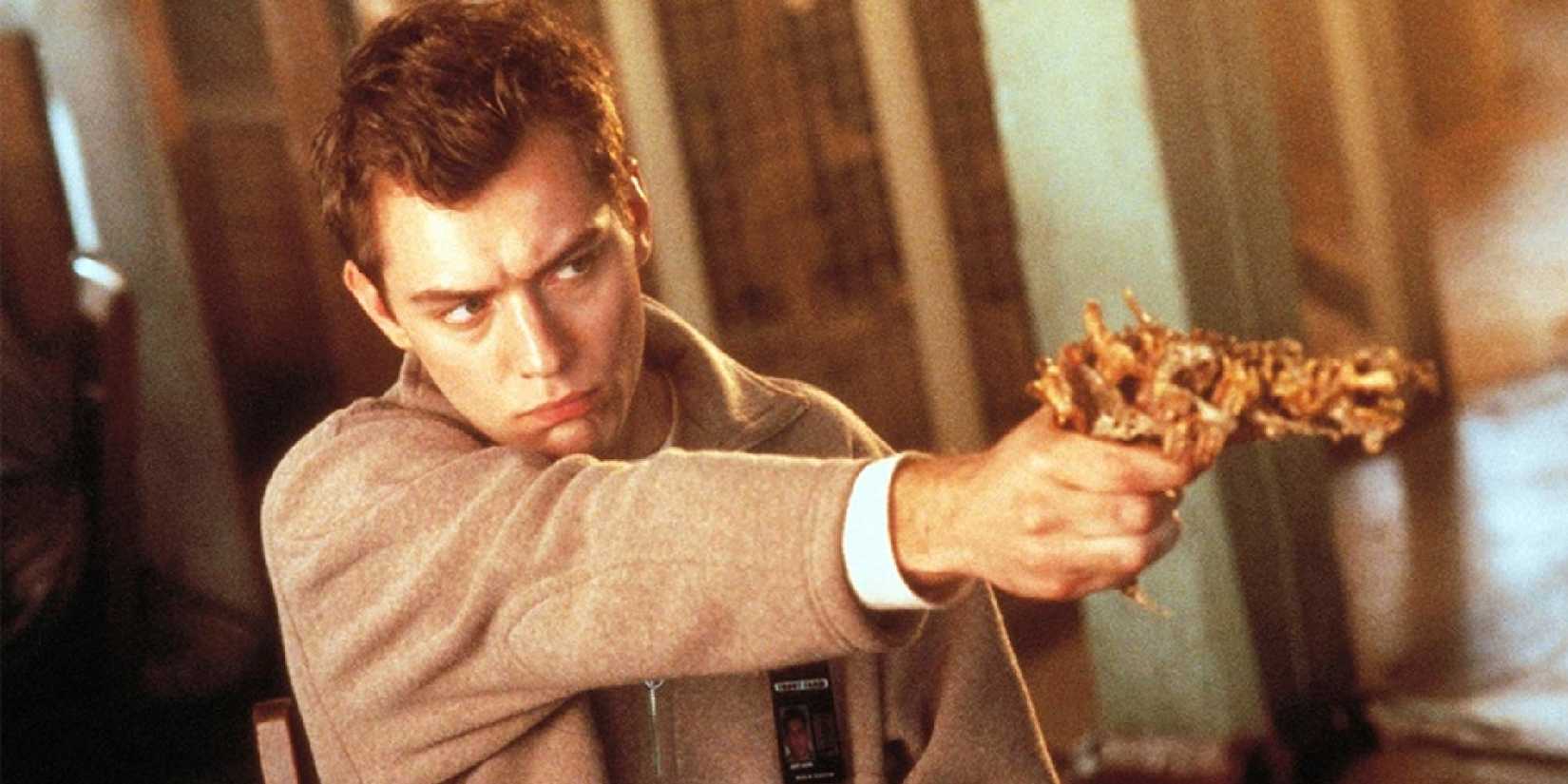
Ted Pikul aiming a gun made of flesh somewhere off-camera in eXistenZ
Image via Alliance Atlantis
Well, it’s all in the title, really. eXistenZ is called eXistenZ, and that makes it difficult to overlook when the topic at hand is “existenzial” horror. This one has a little by way of body horror and generally extreme content that can be found in many David Cronenberg movies. Still, it also revolves around a virtual reality game, and that makes it lean more toward existential themes than some other Cronenberg films.
And it’s not one of his absolute masterpieces or anything, but eXistenZ is still very interesting and has more than enough by way of ideas on its mind to stay engaging and unsettling. It becomes increasingly hard to tell what’s real and what might not be, but all by design, with the overall trip offered by eXistenZ being striking and inevitably unique, too.
5
‘The Endless’ (2017)
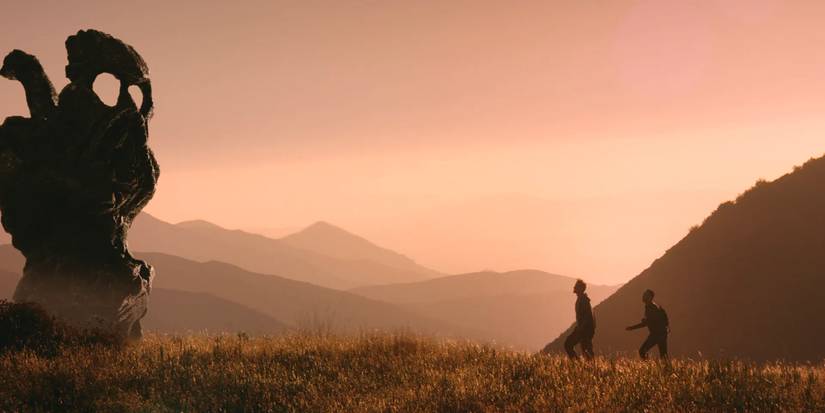
Two people walk across a grass landscape with mountains nearing a mysterious large figure in The Endless.
Image via Well Go USA Entertainment
Standing as something that almost feels a little arthouse-y, owing to how strange and visually striking it is, The Endless is about a pair of brothers and the way they investigate a cult they used to belong to. That’s the set-up, at least, with things getting gradually weirder as they go along, to the point that The Endless starts feeling more and more like both a horror film and a sci-fi movie as it nears its end.
It’s also a psychological thriller movie, and a rather dark one, too. The Endless works as something unsettling, especially if you go into it knowing very little about what will transpire. So, if the above lines all sounded a little bit too vague, that was all in the interest of allowing a fairly obscure and under-appreciated movie to keep its secrets.
4
‘Picnic at Hanging Rock’ (1975)
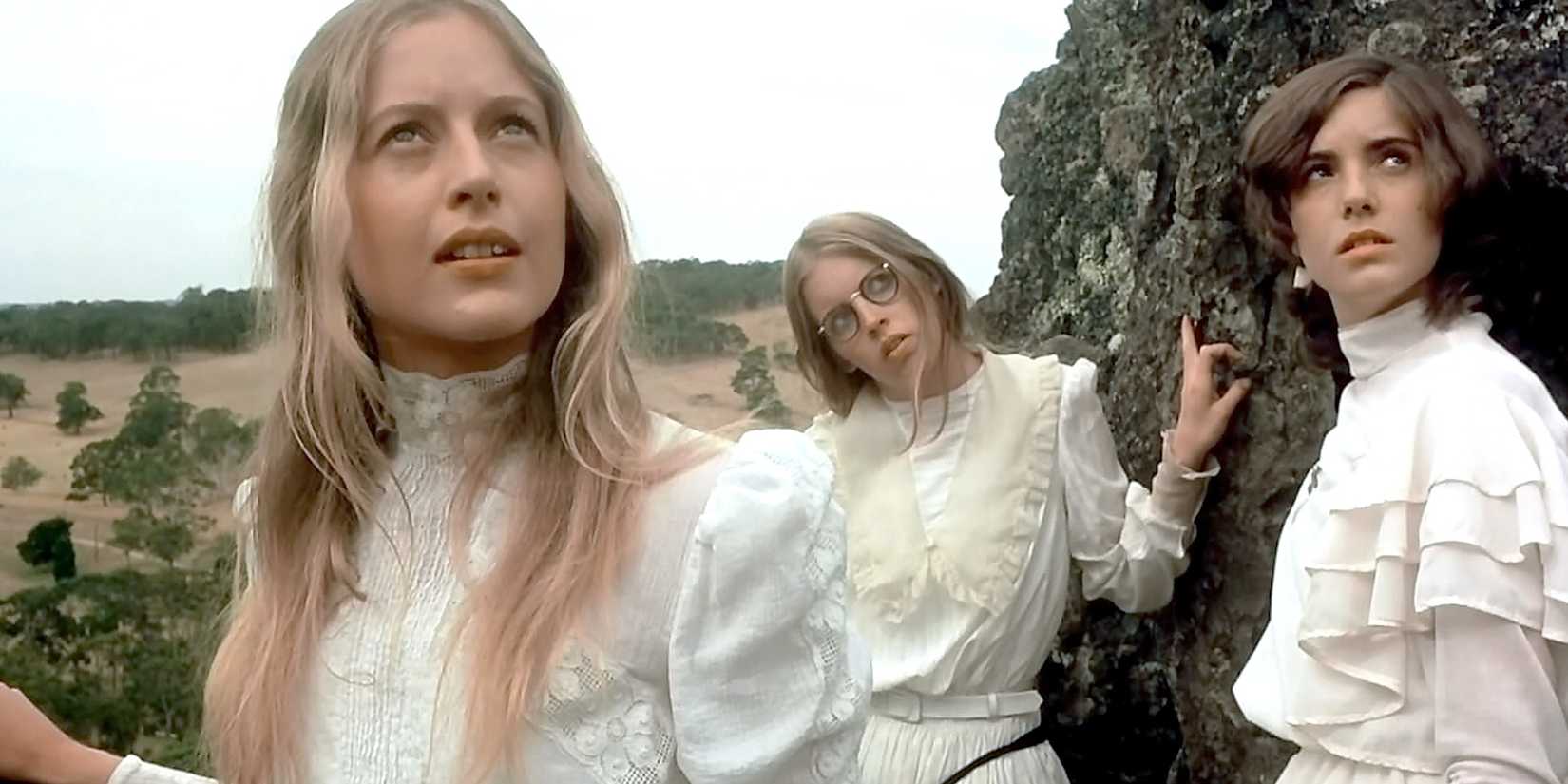
Three women looking up in picnic at hanging rock (1975)
Image via B.E.F. Film Distributors
While it’s more of a mystery/drama film than an outright work of horror, Picnic at Hanging Rock is also undeniably unsettling, and it’s horrifying in an existential kind of way without being in-your-face with typical scares. So, it qualifies here, and the uncertainty behind the disappearance at the heart of the story here is genuinely more troubling than the frights you’ll find in a good many true horror films out there.
It’s also set in Australia, and Australia is uniquely scary, and not just because of all those infamous animals there that seem to be able to kill people very easily. Picnic at Hanging Rock is slow but always purposeful, and it feels like something of a classic, no matter how you ultimately want to define and/or classify it.
3
‘Lost Highway’ (1997)
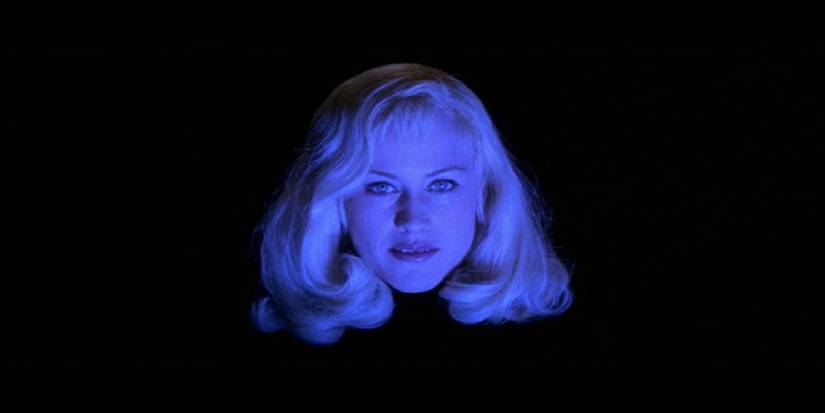
Patricia Arquette’s head in a dark background in Lost Highway
Image via October Films
Lost Highway is, like a good many David Lynch movies, undeniably creepy. He was a master of getting under the skin of his viewers and often tackled things like identity and the absurdity/horror of life in general. He did so perhaps most famously in Mulholland Drive, but there’s less of an emphasis on horror there (though it’s occasionally terrifying). On the other hand, Lost Highway, released a few years earlier, is a bit more of an existential horror film.
What happens here is continually hard to define, but Lost Highway is mostly about a musician driven mad by a series of events that involve death, dual identities, and inexplicable horrors that are difficult to comprehend. It’s hard to explain and outline without just sitting down to watch it, but that enigmatic quality adds to the unease for sure.
2
‘Under the Skin’ (2013)
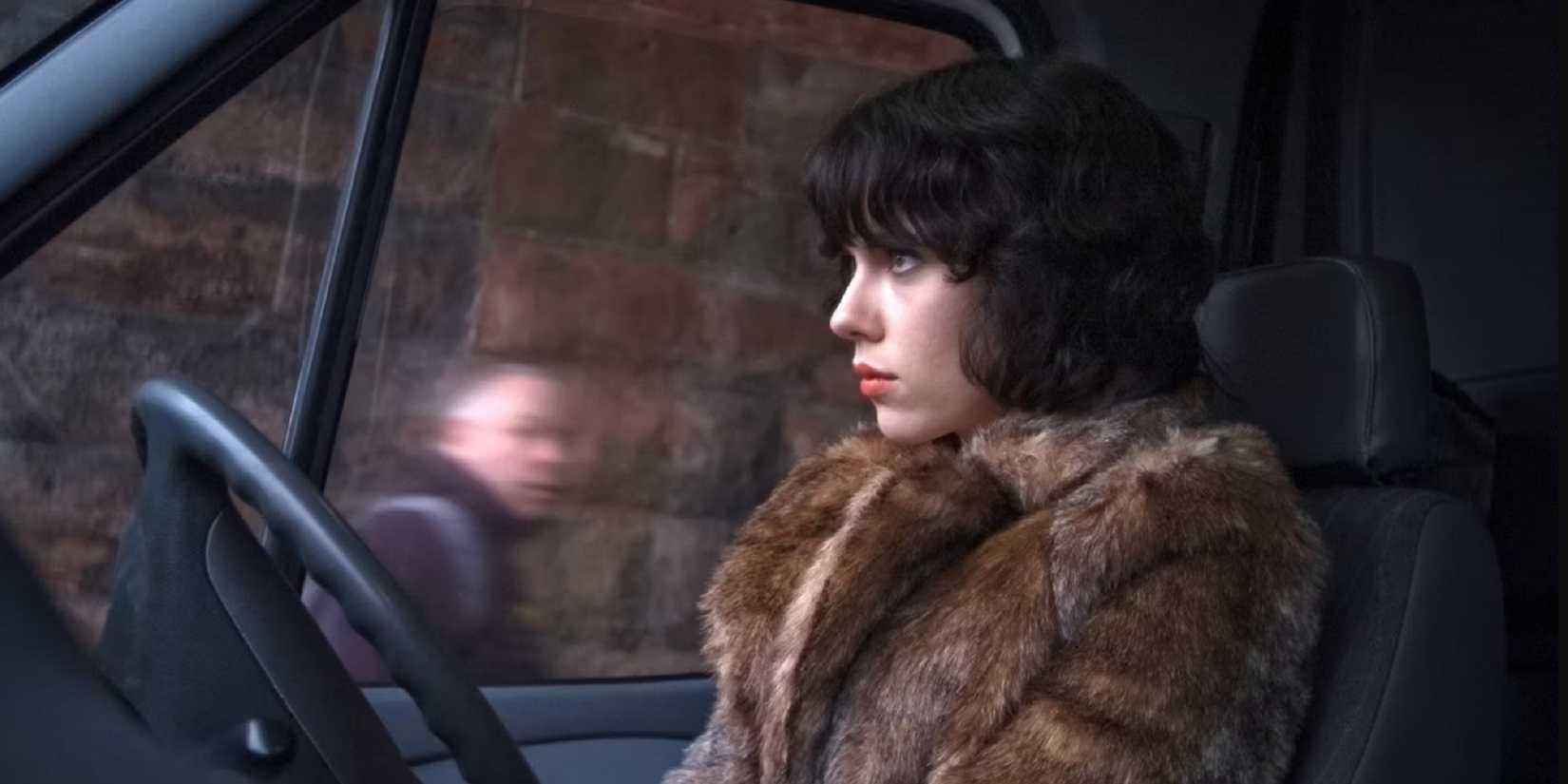
The Alien, played by Scarlett Johansson, drives by a man in the film Under the Skin.
Image via A24
It’s scary enough trying to exist on this planet as a human, but what if you tried to have a go at it while disguised as a human, in truth being an alien? That’s kind of what Under the Skin tries to explore, but it really goes hard on feeling alien and otherworldly, all to the point that so many mysteries and moments of unease persevere, even once you’ve gotten through the entire film.
It’s still worth it, of course, thanks to a great central performance, courtesy of Scarlett Johansson, and the undeniably unique atmosphere found throughout. Under the Skin is always troubling and existentially despairing, but it stands out — and it is worth praising — because it finds new ways to tap into these emotions and themes that are often explored throughout both the horror and sci-fi genres.
1
‘Twin Peaks: Fire Walk with Me’ (1992)
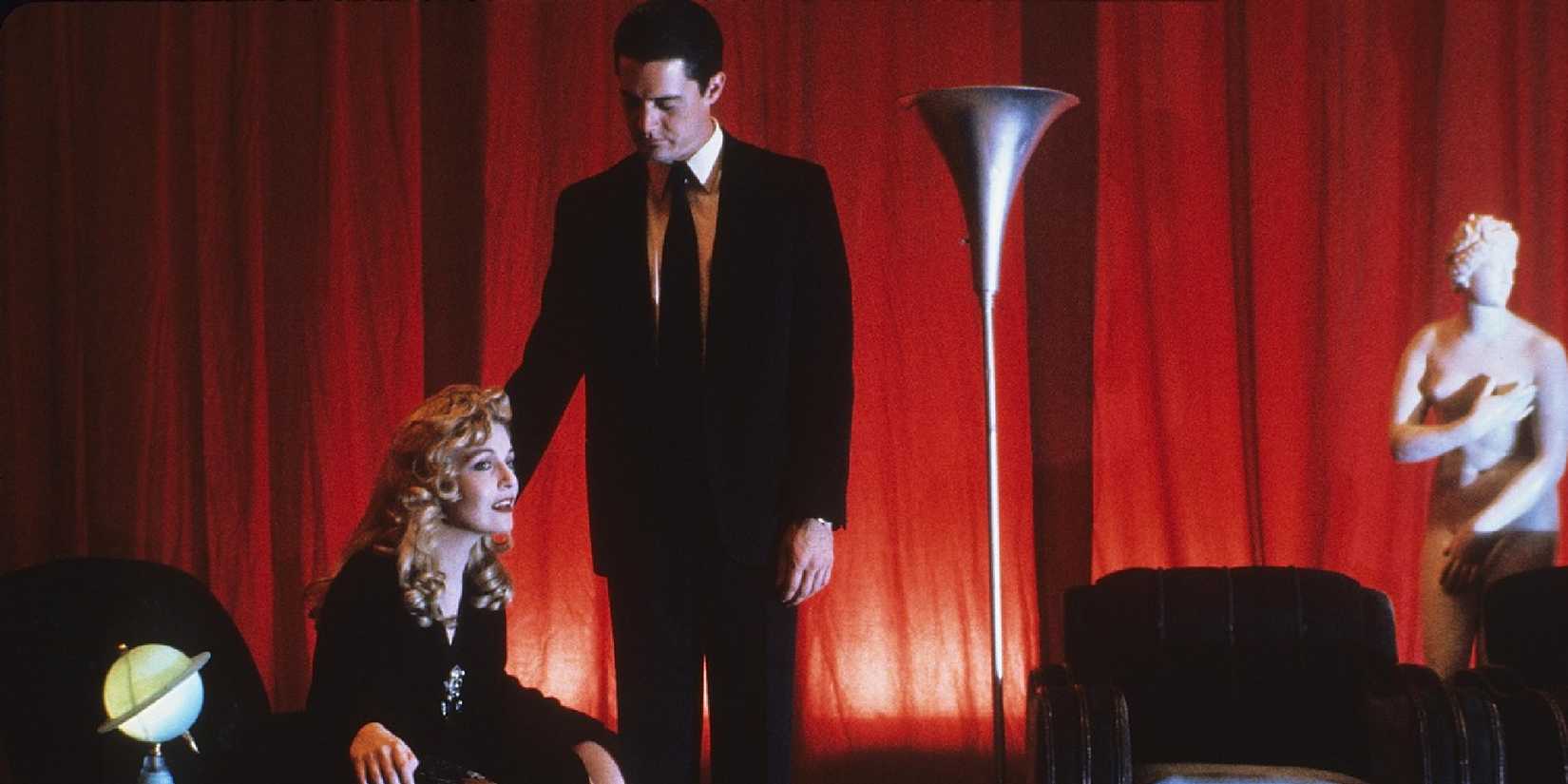
Kyle MacLachlan and Sheryl Lee as Dale Cooper and Laura Palmer in Twin Peaks: Fire Walk with Me
Image via New Line Cinema
Even more so than Lost Highway, Twin Peaks: Fire Walk with Me is relentless in how troubling and disturbing it’s willing to get, all in ways that don’t inspire anything by way of hope or finding purpose. It’s an angry film, born partly out of the cancellation of Twin Peaks, pushing further into darker and more violent territory than that already quite grim series did, and doing so by focusing on the most horrific part of the overall Twin Peaks story.
It’s also one of David Lynch’s greatest films, simultaneously also standing as one of his most difficult and least approachable overall… but again, by design. Twin Peaks: Fire Walk with Me took some time to be properly recognized as a great film by most, but it’s clear to see that now, and if you want to classify it as a piece of existential horror filmmaking, then it might well be the best there is.
NEXT: The Best Movie of Every Year of the 21st Century So Far

